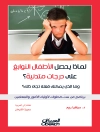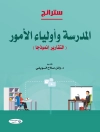Englisch schreiben für die Uni? Studierende und Promovierende müssen wissenschaftliche Texte immer häufiger auf Englisch schreiben.
Dieses englischsprachige Buch hilft mit authentischen Formulierungen aus den Sozial-, Geistes- und Naturwissenschaften. Es bietet praktische Ratschläge für das Schreiben zentraler Textsorten wie Hausarbeiten, Laborprotokolle, Essays, Abschlussarbeiten, Exposés und wissenschaftliche Poster.
Die übersichtlichen Tipps helfen kompetent und souverän auf Englisch zu schreiben.
Spis treści
1 Introduction to Academic Writing 7
1.1 Genre awareness: Conventions, contexts and creativity 7
1.2 Academic collectives 8
1.3 How to use this book 9
2 General writing conventions 13
2.1 Key structures: Writing with paragraphs and topic sentences 13
2.2 Key directions: Using signposts 15
2.3 Key persons: Writing “I”, “we” or in passive voice 17
2.4 Key actions: More verbs, less nouns 18
2.5 Key genders: Using gender-inclusive language 19
2.6 Key sources: Citing other research 20
3 Abstracts: Summarizing your study 23
3.1 OHE: Observe – hypothesize – experiment 23
3.2 Abstracts: The five-finger pattern in science 24
3.3 Abstracts: Five-finger patterns in the humanities 29
3.4 The language of opening sentences 33
3.5 The language of aims and objectives 35
3.6 The language of methods 38
3.7 The language of findings 40
3.8 The language of conclusions and implications 41
3.9 An exsample from the field 43
4 Introductions: Beginning your paper 47
4.1 The general ‘moves’ of academic Introductions 47
4.2 The specific ‘steps’ of academic Introductions 52
4.3 Establishing and occupying a niche 53
4.4 Writing hypotheses 60
5 Empirical research papers: Presenting empirical research 67
5.1 IMRAD 67
5.2 Methods 68
5.3 Results 73
5.4 Discussion 76
5.5 Figures 81
6 Contents
6 Theoretical, interpretative and analytical writing 87
6.1 Developing an argument 88
6.2 Selecting relevant information from sources 89
6.3 Establishing your position I: Finding an authorial ‘voice’ 89
6.4 Establishing your position II: Engaging with sources 93
6.5 Presenting your argument in a coherent manner 102
6.6 Conclusions 107
7 Posters: Visualising your abstract 113
7.1 The purpose of posters 113
7.2 Attractive, compelling and professional 114
7.3 How much information? 118
7.4 Titling your poster 120
7.5 Including images, diagrams and graphs 122
7.6 Using clear language 126
8 Research proposals: Making plans for future studies 131
8.1 A basic model structure 132
8.2 Stating objectives and research question(s) 133
8.3 Stating potential significance 136
8.4 Research design and methods 137
8.5 Expected results 140
8.6 Research limitations 141
8.7 References, timetable and appendices 142
8.8 Common pitfalls 144
9 Diverse genres: Lab reports, short essays, thought papers and case reports 147
9.1 Lab reports 147
9.2 Short essays 152
9.3 Thought papers 158
9.4 Case reports 163
10 Further resources 173
10.1 Continuing alone 173
10.2 Continuing in groups 174
10.3 Academic vocabulary online 174
10.4 Further online resources 176
References 181
Index 191
O autorze
Felicitas Macgilchrist ist Leiterin der Abteilung Schulbuch als Medium am Georg-Eckert-Institut für internationale Schulbuchforschung in Braunschweig und ist Professorin für Medienforschung mit dem Schwerpunkt Bildungsmedien an der Georg-August-Universität Göttingen.












